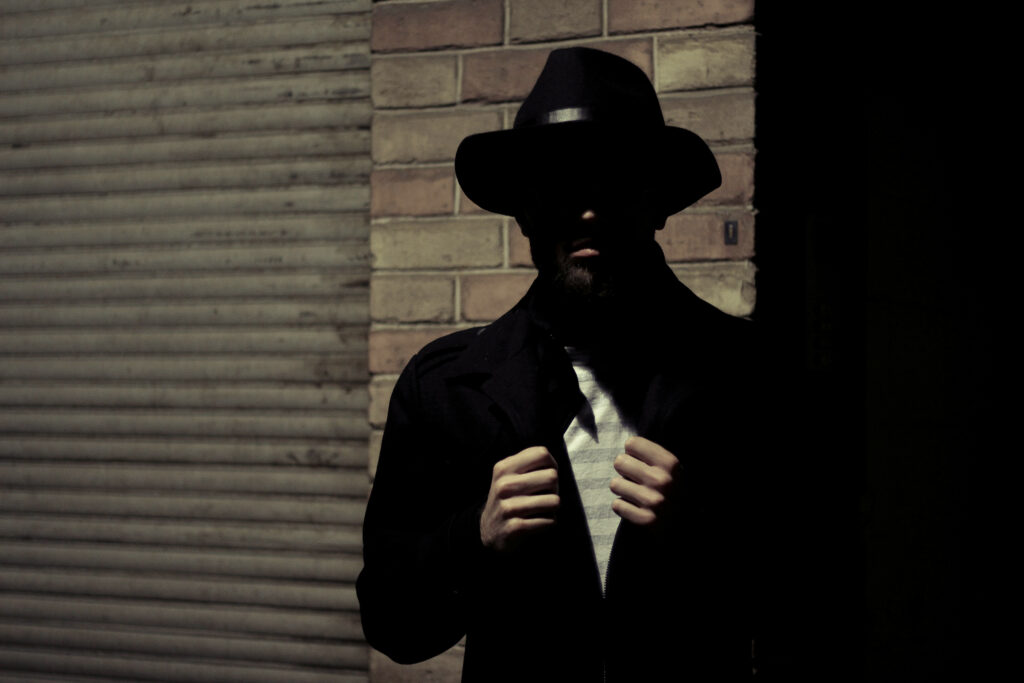“For certain people have crept in unnoticed who long ago were designated for this condemnation, ungodly people, who pervert the grace of our God into sensuality and deny our only Master and Lord, Jesus Christ.” (Jude 4)
Covert operations hold a prominent place in history, and the narrative threads surrounding espionage have long intrigued readers. There is something about secretive and mysterious activities that fascinates us, even while we recognize the necessary—or sometimes diabolical—deception involved in military success. These operations are often effective because the target is unsuspecting and therefore more vulnerable.
The devil is far more cunning than the most experienced general and has more tools at his disposal than the most well-equipped operative. He knows that overt attacks will be more easily turned back than will a covert infusion of error. As such, Jude recognizes the threat posed by false teachers who have “crept in unnoticed.” His audience has fallen prey to these false teachers because they did not come boldly announcing their heresies but by extending the hand of supposed fellowship in a common salvation. It is the forked tongues of those who announce “’Peace, peace,’ when there is no peace” (Jeremiah 6:14) for which we must keep careful watch. The war for the soul is often fiercest in situations in which the devil whispers, and we can easily succumb to his lies if we are not vigilant watchmen (Read John Bunyan’s The Holy War, for more on this spiritual warfare of the soul).
As unsuspecting as we may be to these errors, God is never surprised. Jude notes that these false teachers “who long ago were designated for this condemnation” stand squarely in God’s providence. Jude’s words may refer to a number of prophetic or apostolic announcements of the coming and condemnation of the wicked or to the doctrine of reprobation—God’s providential decree to leave some to their unbelief and sinful nature which destines them for eternal torment. In either case, the overall thrust of the statement is that the judgment of these false teachers is both foreordained and assured. They cannot surprise God with their errors, nor can they escape his divine judgment.
In a world where true justice seems seldom meted out, we rest in knowing that the Judge of all the earth will do right (Genesis 18:25). No evil escapes his watch, and no offender will escape his sentence. Justice is never left unserved. For God’s people, his just wrath toward them for sin is averted and absorbed by Christ (Galatians 3:13), but those outside of Christ are, and will remain for all eternity, under God’s curse.
These “ungodly people” are under God’s curse not only because they believe a perverted gospel, but also because they teach a perverted gospel (Matthew 18:6, James 3:1). Jude says they “pervert the grace of our God into sensuality.” In other words, they were preaching the heresy of antinomianism, which claims that the Christian is under no obligation to obey the moral law of God (anti—“against”, nomos—“law”). They proposed that the grace of God not only covered sin but enabled sin. In place of Paul’s emphatic answer, “By no means!” to the question, “Are we to continue in sin that grace may abound?” (Romans 6:1), they would give an emphatic “Yes!”.
Contrary to the antinomians’ claim that living in sin is a sign of being free to live under God’s grace, such a life is actually evidence that one is under God’s condemnation (1 John 2:4). Christian freedom is fundamentally a freedom from sin, not a freedom to sin. It is indeed a perversion of God’s grace to say, “Go, and sin more,” when Christ says, “Go, and sin no more” (John 8:11).
We are not saved by our obedience, but obedience is proof that we are saved by faith. If we do not strive to obey God’s commands, we can have no confidence in the genuineness of our profession. Therefore, anyone who says that obedience is merely living “under the law” understands neither the law nor grace. When we are gripped by the magnitude of God’s grace to us, the natural and necessary outflow of that regenerative work in us will be to obey God as a primary means of expressing our love to him (John 14:15).
Jude recognizes the danger—and attractiveness—of the antinomian heresy. Our natural tendency is toward indulgence and self-satisfaction, but the fruit of the Spirit is holiness and self-control (Galatians 5:22-23). Jude calls his readers back to the heart of the gospel, which is salvation by grace alone, through faith alone, in Christ alone, for the glory of God alone. What better way to bring him glory than to give our lives to him in obedience as a living sacrifice (Romans 12:1).
Finally, Jude indicts these false teachers of “deny[ing] our only Master and Lord, Jesus Christ.” They may claim the name of Christ as Savior, but they deny the lordship of Christ over their lives. One cannot have Christ as Savior without also having him as Lord. A life that is ransomed by Christ must be lived for Christ.
As we go into the world with the gospel, may we never underestimate the testimony of our obedience to strengthen our message. The gospel is supremely about faith, but we must always remember that faith obeys.
Prayer:
Heavenly Father,
Strengthen us to keep watch for and defend against the creeping errors of false teachers that pervert your grace. You call us to be holy as you are holy. May our lives reflect, not profane, your character.
In the name of your Son, amen.
Prayer requests:
- Pray for awareness of and protection against false teachers who would creep into local churches unnoticed.
- Pray that we as believers would honor the name of Christ by living lives of obedience to him.
- Pray for the Heart, Mind, and Soul seminars hosted by EveryEthne as they teach believers how to lovingly confront the errors of false religions and belief systems.






